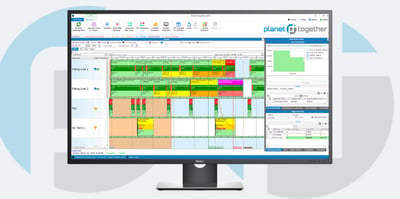The Power of Predictive Maintenance: Asset Reliability
In chemical manufacturing, plant managers face a multitude of challenges, from stringent regulatory requirements to volatile market demands. Among these challenges, ensuring optimal asset reliability stands as a cornerstone for sustainable operations and profitability. Traditional maintenance practices often involve reactive approaches, leading to costly downtime, inefficient resource allocation, and compromised safety.
However, in recent years, advancements in technology, particularly predictive maintenance solutions, have revolutionized the way chemical plants manage their assets. By harnessing the power of data analytics, machine learning, and integration with enterprise resource planning (ERP), supply chain management (SCM), and manufacturing execution systems (MES), plant managers can proactively monitor, diagnose, and address potential equipment failures before they occur, thereby enhancing reliability and productivity.
In this blog, we will explore the significance of predictive maintenance in chemical manufacturing and how integration with leading software solutions such as PlanetTogether and ERP systems like SAP, Oracle, Microsoft, Kinaxis, and Aveva can amplify its benefits.

Predictive Maintenance
Predictive maintenance (PdM) is a proactive maintenance strategy that leverages data analytics and machine learning algorithms to predict equipment failures before they happen. Unlike traditional reactive or preventive maintenance, which operate on fixed schedules or in response to breakdowns, predictive maintenance relies on real-time data from sensors, IoT devices, and historical maintenance records to forecast potential issues.
Key Components of Predictive Maintenance
Data Acquisition: The foundation of predictive maintenance lies in the collection of high-quality data from various sources within the manufacturing environment. This includes equipment sensors, operational parameters, environmental conditions, and historical maintenance data.
Data Analytics: Once the data is collected, advanced analytics techniques such as machine learning algorithms are applied to identify patterns, anomalies, and trends indicative of impending equipment failures. These analytics models continuously learn and improve over time, enhancing the accuracy of predictions.
Condition Monitoring: Continuous monitoring of equipment health in real-time allows plant managers to detect deviations from normal operating conditions and proactively intervene to prevent failures. This includes monitoring vibration, temperature, pressure, and other critical parameters.
Predictive Modeling: By analyzing historical maintenance data and equipment performance metrics, predictive models can forecast the remaining useful life of assets, predict failure modes, and recommend optimal maintenance actions.
Integration with ERP, SCM, and MES Systems: To fully realize the benefits of predictive maintenance, seamless integration with enterprise-wide systems such as ERP, SCM, and MES is essential. This integration enables synchronized data exchange, streamlined workflows, and holistic visibility across the manufacturing value chain.


PlanetTogether in Predictive Maintenance
PlanetTogether is a leading production planning and scheduling software that empowers chemical manufacturers to optimize production processes, minimize lead times, and maximize resource utilization. By integrating PlanetTogether with predictive maintenance systems, plant managers can align production schedules with maintenance activities, ensuring minimal disruption to operations while maximizing asset reliability.

Key Benefits of Integrating PlanetTogether with Predictive Maintenance
Optimized Production Scheduling: By incorporating predictive maintenance insights into production planning algorithms, PlanetTogether can dynamically adjust production schedules to accommodate preventive maintenance activities without compromising delivery deadlines or production efficiency.
Minimized Downtime: Proactively scheduling maintenance based on predictive insights helps minimize unplanned downtime and production disruptions, ensuring continuous operation and meeting customer demand.
Resource Optimization: Integration with PlanetTogether enables optimal allocation of resources, including manpower, materials, and equipment, taking into account both production requirements and maintenance schedules.
Enhanced Decision-Making: Real-time visibility into equipment health and maintenance schedules empowers plant managers to make informed decisions regarding asset prioritization, resource allocation, and operational strategies.
Improved Cost Efficiency: By preventing costly unplanned downtime, reducing maintenance-related inventory and optimizing resource utilization, integration between PlanetTogether and predictive maintenance systems leads to significant cost savings over time.
In chemical manufacturing, maximizing asset reliability through predictive maintenance is no longer just a competitive advantage but a necessity for sustainable growth and operational excellence. By harnessing the power of data analytics, machine learning, and integration with leading software solutions such as PlanetTogether and ERP systems like SAP, Oracle, Microsoft, Kinaxis, and Aveva, plant managers can transform maintenance practices from reactive to proactive, ensuring uninterrupted operations, optimal resource utilization, and superior customer satisfaction.
As we look to the future, the convergence of predictive maintenance, advanced analytics, and digital technologies will continue to reshape the manufacturing industry, driving innovation, efficiency, and resilience across the entire value chain. Embracing these transformative technologies today will position chemical manufacturers for success in the dynamic markets of tomorrow.
Are you ready to take your manufacturing operations to the next level? Contact us today to learn more about how PlanetTogether can help you achieve your goals and drive success in your industry.


